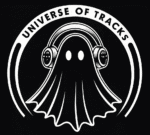5 Essential Tips for a Successful Remote Music Collaboration
The internet has made it possible to create music with talented people from all over the world. But it has also created new challenges. A project that starts with excitement can easily fall apart due to poor communication, messy files, and unclear expectations.
To avoid the frustration, follow these five essential tips for a smooth and successful remote music collaboration.
1. Set Expectations and Get It in Writing
Before a single note is recorded, have an honest conversation about the “business” side of things.
- Splits: How will royalties and publishing be divided? 50/50? Or does one person get more for a larger contribution?
- Credits: Who will be credited as the main artist? Who gets a “featured” credit?
- Deadlines: Set realistic target dates for each phase of the project. Write it all down in a simple email or a formal “split sheet.” This avoids awkward conversations later.
2. Centralize Your Communication
Don’t let your project get lost in a sea of Instagram DMs, WhatsApp messages, and emails. Choose one primary channel for all project-related communication. A dedicated Discord server or a Slack channel works perfectly. This creates a single source of truth where all feedback and decisions are stored.
3. Master Your File Organization
A messy project folder is a collaboration killer. Create a shared cloud folder (Dropbox, Google Drive) with a clear structure from day one.
- Create Subfolders:
01_Project Files(for the DAW session),02_Bounces(for MP3s of the latest version),03_Stems(for audio exports),04_MIDI,05_Reference Tracks. - Use a Naming Convention: Name your files clearly.
ProjectName_124bpm_Am_V1.mp3is good.audio_final_final_02.wavis a nightmare.
4. Define Roles Based on Strengths
You are collaborating because each person brings something unique to the table. Leverage that. Decide upfront who has the final say on different aspects of the track.
- Who is the “Arranger”? Responsible for the overall structure.
- Who is the “Sound Designer”? Responsible for creating the core sounds.
- Who is the “Mixing Engineer”? Responsible for the final mixdown.
This is where finding someone with complementary micro-specializations becomes a superpower. If you’re a great songwriter but not a mixing expert, find someone who is.
5. Start with the Right Partner
Don’t just collaborate with the first person who replies to your post. Take a moment to vet your potential partner.
- Listen to their previous work. Does their quality match yours?
- Check their professionalism. Are they communicating clearly and promptly?
- Find someone whose skills fill your gaps.
Finding that perfect partner is the most important step.
Ready to Collaborate?
Finishing a track with someone you’ve never met in person is one of the most rewarding experiences in modern music. By following these steps, you can ensure the process is as creative and seamless as possible.
If you’re ready to find your next collaborator, our Collaboration Hub is the perfect place to start. Search for producers by their specific skills and find the perfect partner for your next hit.

